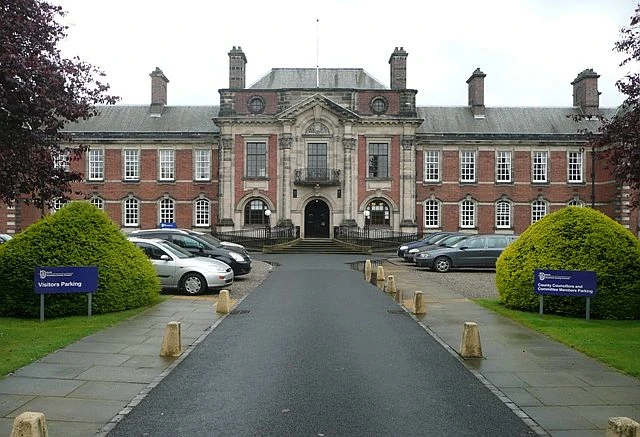A bill is currently passing through the UK Parliament entitled the “Devolution and Community Empowerment Bill 2024-2025” [link]. We wrote to Alison Hume MP, as follows
We note that the English Devolution and Community Empowerment Bill 2024-25 is scheduled for its second hearing in the House of Commons on 2nd September 2025.
The Act should benefit local communities and groups such as ours. We particularly welcome the objective to empower communities to have a voice in local decisions by introducing a requirement on all local authorities in England to establish effective neighbourhood governance.
However, we wish to draw several issues to your attention that, in our opinion, the proposed Bill does not address adequately. Our website details our concerns about the effect of delays in the audit of the Scarborough Borough Council accounts since 2015/16. There are on-going objections to the accounting treatment by North Yorkshire Council of the municipal Statutory Harbour Authorities for Whitby and Scarborough. In the light of these local issues, we consider that the proposed Act should include specific provisions which would better safeguard individual local electors and improve audit oversight and transparency.
We also suggest that the transport planning functions of Strategic Authorities should include municipal Harbour Authorities, as well as land-based Local Transport Authorities. This would improve co-ordinated transport and infrastructure planning for some 40 coastal communities in England. These are almost all smaller, isolated towns with a heavy economic dependence on tourism. Their accessibility to visitors depends on land-based transport options.
- Local Audit Reform
- We welcome the establishment of the Local Audit Office (LAO) as the body responsible for overseeing local audit, but consider that the wording of the Bill should specifically include granting the LAO the power to require local bodies to make changes to their accounts.
- We suggest that the LAO should also be granted the power to establish an “Ombudsman” service. This should be authorised to investigate and determine, on behalf of individual local electors, formal objections raised to Local Authority draft accounts.(c.f. the Local Govt. and Social Care Ombudsman Service)
- Strategic Authorities: Transport Planning Responsibilities. The Bill defines “transport and local infrastructure” as one of the seven areas of competence required of Strategic and Mayoral Authorities. Schedule 9 confers them the functions of Local Transport Authorities and makes provision about other functions relating to land-based transport. But the Department for Transport is also responsible for harbours and coastal transport. The Marine and Coastal Access Act 2009 has a strong focus on the sustainable use, protection, and access to marine and coastal activities.
- We suggest that Municipal Harbour Authorities should be specifically included as an integral part of the Transport Planning functions of Strategic and Mayoral Authorities.
We would be happy to provide further information, if required, and would welcome the opportunity to discuss any of these issues with you, in person, as the Bill progresses through Parliament.
Whitby Community Network
We sent a further letter on 10/10/2025, as follows
Re: English Devolution and Community Empowerment Bill
Dear Alison,
We received a presentation on this Bill at our recent Whitby Community Network (WCN) meeting and it generated much interest and discussion along with many questions. The group were particularly keen to explore opportunities to strengthen communities’ influence and control.
The collective experience of many of us who live in this lovely town is that Local Government and governance is remote, characterised by no or inadequate consultation, decisions that adversely affect residents and undermine our important tourism industry, along with little or no investment in our public assets; recent examples being secondary education and the West Cliff lift.
We appreciate that you are already aware of many of our concerns and we do not intent to repeat them again in this letter. Instead, we would rather seek your support in relation to the opportunities enabled through the English Devolution and Community Empowerment Bill, currently before Parliament.
At present, grants are being obtained as and where opportunities arise, without a clear, congruent and comprehensive plan for the future. Whitby has an ageing population with a majority of residents being over 55, the resident population is declining and there are areas of significant deprivation. Limited investment in necessary maintenance over several
years has resulted in a massive decline in our infrastructure, some examples being the broken cliff lift, the leaking Pavillion and wholly inadequate parking arrangements. This ongoing lack of maintenance and investment is adversely affecting our major industry – tourism. Currently, Whitby continues to attract a high volume of tourists who love its heritage and natural beauty, but this will not continue without cohesive community engagement and targeted investment.
While the draft English Devolution and Community Empowerment Bill intends to provide a basis for strengthening community engagement, we feel it needs to go further. We agree with the objectives of the “We’re Right Here” campaign which seeks to strengthen
community rights as follows:
- A Community Right to Shape Public Services
- A Community Right to Control Investment and
- Community Covenants
In addition, we were very concerned by a matter raised during the first stage of the Committee hearing of the Bill, held on 16 September. One witness pointed out that National Parks will be the only planning authorities that are not covered by the provisions in the draft Bill. The North York Moors National Park Authority is a separate planning authority that operates independently of the York and North Yorkshire Combined Authority and has different statutory purposes. Whitby is the only town in England to be wholly enclosed within a National Park, but not part of it, and this creates a risk for Whitby.
Recreation and tourism are now the economic base of both the NYMPA and Whitby, but the strong controls on housing development within the National Park have contributed to the exceptionally high levels of second and holiday homes in the town.
Whitby and the Esk Valley has long been recognised as a distinct, geographically isolated area. Given the risks for this community, we consider that the Bill should include some safeguards that would require the NYMNPA and the YNYCA to develop joint plans for this unique area, in full conjunction with the local community.
To ensure the democratic aims can be met the Bill needs to protect the rights of local people to be involved in a meaningful way, and this needs to be more than tokenistic inclusion while existing structures and processes continue unchanged and unresponsive to community voices. “We’re Right Here” comments that Communities must have a significant means of recourse where neighbourhood governance institutions are not meeting the principles of the Bill.
WCN CIC has been working on the Neighbourhood Plan for Whitby with the support of Whitby Town Council and this is nearing completion. This comprehensive plan will provide an important planning framework for the town; we wonder therefore how the various processes will knit together in future given the streamlining of planning and the removal of funding for Neighbourhood Plans.
We would appreciate your support in shaping and strengthening community rights in this Bill so that our community can benefit.
Thank you for all your hard work on our behalf.
Whitby Community Network CIC
Alison Hume replied on 21/01/2026, as follows
Dear Whitby Community Network,
Thank you very much for writing to me, firstly, I apologise for the delay in responding, due to the amount of incoming work, I have had to prioritise constituents in need of urgent assistance. I appreciate you sharing the thoughtful reflections that emerged from your recent meeting. I respect the depth of work you continue to undertake on behalf of the town, and I am grateful for the clarity with which you have set out both the opportunities and the risks presented by the English Devolution and Community Empowerment Bill.
One of the strongest messages I always hear from residents across Whitby and the Esk Valley is the sense that decision‑making has become increasingly remote, with consultation often feeling inadequate or symbolic rather than meaningful. I have raised this broader concern in Parliament, emphasising the need for national policy to be grounded in the lived experience of local communities, and for local voices to be central to decisions that shape their future. That principle underpins my approach to this Bill.
You are absolutely right to highlight the challenges facing Whitby: an ageing population, declining resident numbers, pockets of deep deprivation, and years of under‑investment in essential public assets. I share your concern that without a realistic long‑term plan, shaped with the community we risk undermining the very foundations of our tourism economy and the wellbeing of residents. I have seen this first hand in different campaigns I have involved myself in and sought for action, such as the West Cliff lift, the Pavilion, and parking provision are not isolated problems; they are symptoms of a wider pattern of neglect that must be addressed strategically.
I agree that the Bill presents an opportunity to strengthen community influence, but I also recognise the limitations you have identified. The proposals championed by the “We’re Right Here” campaign, including a Community Right to Shape Public Services, a Community Right to Control Investment, and Community Covenants, align closely with the concerns residents have raised with me. These ideas deserve serious consideration, and I will continue to explore how they can be reflected more strongly as the Bill progresses.
In addition, the Government’s new Fairer Funding initiative is an important step toward ensuring coastal and rural communities like ours finally receive a more balanced share of national investment. For too long, funding formulas have overlooked the pressures on local services, ageing populations, and seasonal economies.
Your point about the North York Moors National Park Authority is particularly important. As you note, Whitby is uniquely positioned: entirely enclosed by the National Park boundary yet not part of it. The exclusion of National Parks from the Bill’s provisions raises legitimate concerns about accountability and coherence in planning. I understand why this creates anxiety, especially given the pressures caused by high levels of second and holiday homes.
The work you have undertaken on the Neighbourhood Plan is a significant achievement, and I appreciate the uncertainty created by changes to planning processes and the removal of funding for such plans. Ensuring that community‑led frameworks like yours retain real weight and are not sidelined by new structures will be an important part of the scrutiny process.
Please be assured that I will continue to engage closely with the Bill as it moves through Parliament. I will explore opportunities to raise the concerns you have outlined and to advocate for stronger, clearer rights for communities like ours. Whitby deserves a governance model that reflects its unique character, its challenges, and its aspirations and I am committed to ensuring your voices are heard at every stage.
Thank you again for your continued work and for taking the time to write to me.
Alison Hume MP




